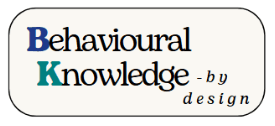Debunking Common Myths in Behavioural Science
JK
Understanding Behavioural Science
Behavioural science is a fascinating field that combines insights from psychology, neuroscience, and sociology to understand how people make decisions. Despite its growing popularity, several myths persist about what behavioural science can and cannot do. In this blog post, we aim to debunk some of the most common misconceptions surrounding this discipline.
One prevalent myth is that behavioural science can predict individual behavior with pinpoint accuracy. While it provides frameworks and models to understand general patterns, predicting specific actions of individuals remains challenging. Human behavior is influenced by a multitude of factors, including emotions, environment, and unforeseen circumstances. As such, behavioural science focuses more on trends rather than absolutes.

Myth: Behavioural Science Equals Mind Control
An often exaggerated belief is that behavioural science can be used for mind control or manipulation. This myth likely stems from a misunderstanding of the field's objectives. The uninformed may perceive behaviour science as “changing people against their will” Using psychological insights to steer behaviour without a person's awareness or consent is the equivalent of covert control or propaganda. Manipulation involves deception and hidden motives whereas good behaviour science is transparent, evidence-based, and aims to empower, not control. Behavioural science follows ethical frameworks such as beneficence, non-maleficence, justice, and respect for autonomy and voluntary behaviour change.
Behavioural science aims to understand human behavior to improve decision-making and societal outcomes, not to control or manipulate individuals against their will. Although techniques derived from behavioural science, such as nudging, are used to influence decisions, they operate by making certain choices easier or more attractive rather than coercing individuals. The effectiveness of these interventions relies on transparency and consent, ensuring ethical standards are maintained.
The Limits of 'Nudge Theory'
Nudge theory is a popular concept within behavioural science that suggests small changes in the environment can lead to significant changes in behavior. However, it's a myth to believe that nudges are a cure-all solution. Nudges are effective in specific contexts but are not universally applicable.

Nudges work best when the change required is relatively simple and does not involve deeply ingrained habits or beliefs. For complex behaviors, a combination of strategies including education, incentives, and policy changes may be necessary to achieve lasting change.
Myth: Behavioural Science Is Not Scientific
Some critics argue that behavioural science is not a "real" science because it doesn't always rely on controlled experiments like those in physics or chemistry. However, this overlooks the rigorous methodologies employed by behavioural scientists.
Behavioural science uses a variety of research methods, including experiments, surveys, and observational studies, to gather data and test hypotheses. This diversity in approach allows for a comprehensive understanding of complex human behavior.

The Role of Culture in Behavioural Science
A common misconception is that findings from behavioural science can be universally applied without considering cultural contexts. Culture plays a crucial role in shaping behavior, and what works in one cultural setting may not work in another. Behavioural scientists must account for cultural differences when designing interventions or interpreting data. This ensures that the insights gained are relevant and applicable across different populations.
Embracing the Complexity
In conclusion, while behavioural science offers powerful tools for understanding and influencing human behavior, it's important to recognise its limitations and avoid oversimplifying its capabilities. By debunking these myths, we can better appreciate the complexity of human behavior and the valuable insights this field provides.
Ethical Frameworks & Safeguards
OECD (2019): Tools and Ethics for Applied Behavioural Insights
BIT (Behavioural Insights Team): Ethical Code of Conduct
Nuffield Council on Bioethics: The Nuffield Intervention Ladder – ranks interventions by how much they interfere with autonomy.
APA Code of Ethics: Emphasises informed consent, beneficence, and respect.
